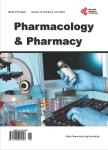Cilostazol Enhances Oxidative Glucose Metabolism in Both Neurons and Astroglia without Increasing Ros Production
Cilostazol Enhances Oxidative Glucose Metabolism in Both Neurons and Astroglia without Increasing Ros Production作者机构:不详
出 版 物:《Pharmacology & Pharmacy》 (药理与制药(英文))
年 卷 期:2011年第2卷第4期
页 面:315-321页
学科分类:1002[医学-临床医学] 100214[医学-肿瘤学] 10[医学]
主 题:Astrocyte Cilostazol Glucose Lactate Pyruvate Dehydrogenase
摘 要:Cilostazol, a potent inhibitor of type 3 phosphodiesterase (PDE3), has recently been reported to exert neuroprotective effects during acute cerebral ischemic injury. These effects are, at least in part, mediated by the inhibition of oxidative cell death. However, the effects of cilostazol on glucose metabolism in brain cells have not been determined. In the present study, we examined the effects of cilostazol on the oxidative metabolism of glucose and the resultant formation of reactive oxygen species (ROS) in cultured neurons and astroglia. Cultures of neurons or astroglia were prepared from Sprague-Dawley rats. The cells were treated with cilostazol (0 – 30 μM) for 48 hours prior to the assay. L-[U-14C]lactate ([14C]lactate) or [1-14C]pyruvate ([14C]pyruvate) oxidation was measured. ROS production was determined using an H2DCFDA assay with a microplate reader. Forty-eight hours of exposure to cilostazol resulted in dose-dependent increases in [14C]lactate and [14C]pyruvate oxidation in both the neurons and astroglia. Dibutyryl cyclic AMP (0 – 0.5 mM) also increased [14C]lactate oxidation, indicating cAMP-mediated PDH activation. In contrast, free radical formation was not affected by cilostazol in either the neurons or astroglia. Cilostazol enhanced the oxidative metabolism of glucose in both neurons and astroglia, while it did not augment ROS production.



